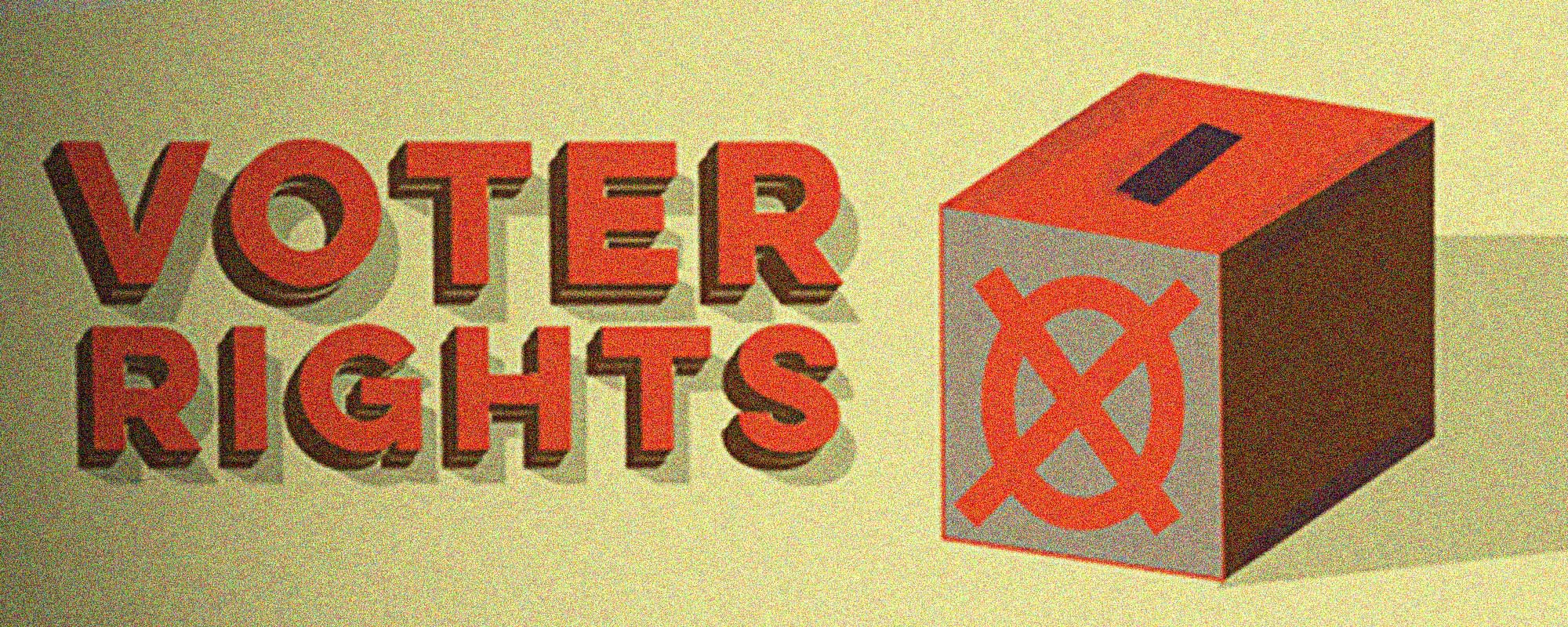TalkRights features content produced by CCLA volunteers and interviews with experts in their own words. Opinions expressed here do not necessarily represent the CCLA’s own policies or positions. For official publications, key reports, position papers, legal documentation, and up-to-date news about the CCLA’s work check out “THE LATEST” section of our website.
BACKGROUND
In recent decades, the right to vote and meaningfully participate in the democratic process has widely been recognized as a fundamental right. While the right to vote has increasingly been extended to historically disenfranchised groups (such as women, inmates, and Indigenous peoples), citizenship remains a widely accepted limitation on the right to vote. As it stands in Canada, permanent residents are not permitted to vote at any level of government. Furthermore, Section 3 of the Charter, which guarantees the right to vote and run for office explicitly states that these are rights that are limited to citizens only. Nevertheless, recent proposals in Toronto, Vancouver, and other Canadian municipalities[1] to extend voting rights to permanent residents in municipal elections have brought the issue of non-citizen voting rights to the forefront. This article explores why the disenfranchisement of non-citizens matters, and the existing legal framework in Canada.
WHY DOES IT MATTER?
As suffrage has expanded beyond race, sex, and class, non-citizens continue to be the largest adult group excluded from political participation. Yet, the exclusion of non-citizen residents from the democratic process has been widely accepted, since our conception of democracy and voting rights is so closely tied to citizenship. Although many non-citizen residents pay taxes and own property where they live, they continue to be excluded from the democratic processes, leaving them politically powerless in decisions that have a direct impact on their livelihood. This group includes particularly vulnerable populations such refugees and temporary foreign workers.
The practical implications for non-citizen resident disenfranchisement are significant., In municipalities like Toronto with one Canada’s largest foreign-born population (nearly 1.3 million individuals in 2016), it means that nearly half of the adult population is left politically voiceless. The disenfranchisement of a large portion of non-citizens who reside in a territory but are unable to participate politically leads to a problem of democratic legitimacy.
CURRENT LEGAL FRAMEWORK IN CANADA
As it stands in Canada, no non-citizen is permitted to vote at any level of government, be it municipal, provincial, or fedral. The wording of Section 3 of the Canadian Charter of Rights and Freedoms, which upholds democratic rights, explicitly states that voting rights are reserved for Canadian citizens, as it states, “Every citizen of Canada has the right to vote in an election of members of the House of Commons or of a legislative assembly and to be qualified for membership therein. ” The Supreme Court has interpreted the purpose of section 3 as to ensure that every citizen has a the right to play a meaningful role in the democratic process.[2] Democratic rights are thus one of the few Charter-protected rights that are only guaranteed to Canadian citizens.[3] While the current constitutional framework limits voting rights to Canadian citizens, this would not preclude municipalities from extending voting rights to non-citizen residents if there was the political will.
WHO ELSE IS DOING IT?
Extending voting rights to non-citizen residents is not without precedent. As it stands, forty five democracies around the world have granted voting rights to foreigners, to varying degrees. While certain jurisdictions allow non-citizen residents to vote in national elections, the majority of democracies confine non-citizen voting rights to local levels. [4] Furthermore, all jurisdictions that allow non-citizen voting have long-term residency requirements (this can range from one year to ten years), which disqualifies individuals like tourists, students, and temporary seasonal workers from voting.
Examples of jurisdictions that allow non-citizen resident voting include the following:
- Sweden allows non-citizen residents to vote in municipal elections and county/council elections, so long as they have been registered in the Swedish population for at least three years.
- The Netherlands allows non-citizen residents to vote in municipal elections if they have been living in the country with a residence permit for at least five years.
- The United Kingdom allows resident Commonwealth citizens to vote in general elections. This means qualifying residents who are citizens of nations such as Canada, New Zealand and Bangladesh are permitted to vote.
- In Malawi, non-citizen residents are permitted to vote in national elections after a period of seven years of residence.
- In Uruguay, non-citizen residents are permitted to vote in national elections after a period of fifteen years of residence.
- New Zealand is one of the most inclusive nations, allowing non-citizen residents to vote in both national and local elections after only one year of residency.
- Chicago allows non-citizens to run and vote in school board elections. From 1968 and 2003, New York did the same.
- Six municipalities in Maryland allow non-citizen residents to vote in municipal elections.
- Luxembourg allows non-citizen residents to vote in municipal elections if they have been a resident for at least five years.
- Belgium allows non-citizen residents that are listed on the foreign nationals list or local electors list to vote in municipal elections.
- In Switzerland, several cantons allow non-citizen residents to vote at the local level. However, residency requirements can vary from just one year to five years.
- Article 8b of the 1993 Maastricht Treaty allows citizens of the fifteen signatory states in the European Union who reside in the EU to vote in another EU state.
CONCLUSION
In an increasingly globalized and transnational world, the voting rights of non-citizens will continue to be an important point of discussion. Although many non-citizen residents pay taxes and own property where they live, and are directly impacted by political decisions, they continue to remain politically voiceless, which leads to an issue of democratic legitimacy. Although Canada’s current constitutional framework only guarantees that Canadian citizens have the right to vote, other jurisdictions have either already granted non-citizens voting rights, or are considering extending the right to non-citizens. As such, Canada should remain active in the debate.
[1] City of Vancouver, motion B.8, Permanent Resident Voting (17 April 2018); City of Toronto, motion GM22.15, Proposed Electoral Reforms (11 June 2013
[2] Figueroa v Canada (Attorney General), 2003 SCC 37, [2003]1 SCR 912 at para 33
[3] Rheaume v Ontario (Attorney-General), 1989 70 OR (ed) 602, leave to appeal to SCC refused.
[4] David C. Earnest, “The enfranchisement of resident aliens: variations and explanations” (2015) 22:5 Democratization 861 at 863.
About the Canadian Civil Liberties Association
The CCLA is an independent, non-profit organization with supporters from across the country. Founded in 1964, the CCLA is a national human rights organization committed to defending the rights, dignity, safety, and freedoms of all people in Canada.
For the Media
For further comments, please contact us at media@ccla.org.




